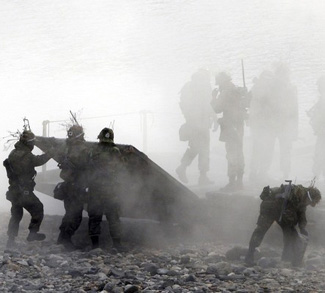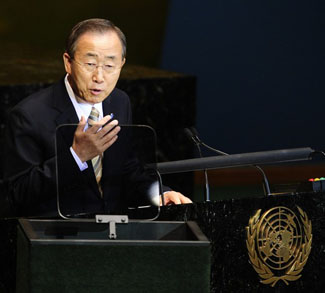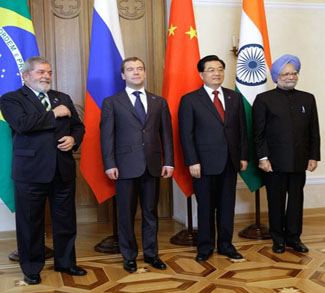Despite a brief period of time last year that suggested otherwise, it seems that the United States will continue to view its foreign policy towards Myanmar through the lens of human rights and not realpolitik.
If the Myanmar elections prove one thing, it’s that the prolonged policy of Western isolation and sanctions against the military government in Yangon have failed to produce any progress on the human rights front. Quite the contrary, Aung San Suu Kyi remains under house arrest and if anything rights have been rolled back since the abortive saffron revolution of 2007.
That the government of Myanmar is able to brush off Western attempts at economic and diplomatic isolation is largely a function of the huge amounts of Chinese investment that continue to flow into the country. China and Thailand are pumping cash into Myanmar`s natural resources, and it`s highly likely that they will soon be joined by India. For China, Myanmar represents a golden opportunity to diversify its energy imports away from an almost sole reliance on the Straits of Malacca. It also allows Beijing to stake a geopolitical claim to the Indian Ocean- a development that New Delhi is hoping to forestall by itself engaging heavily with the military junta in Yangon.
Where Washington falls into this dynamic poses an interesting conundrum. Last year, Secretary Clinton and the State Department outlined a plan by which the United States would re-engage with Myanmar if certain steps towards political liberalization were taken. The military leadership in Yangon spurred these advances, forcing Washington to continue abstaining from engaging with Myanmar- even though to do so could provide a check on expanding Chinese influence in the region.
Not everyone in Washington is on board with sitting back and indirectly giving Beijing exclusive rights to develop its own economic and military ties to Myanmar. Democrat Senator Jim Webb, the chair of the Senate Foreign Relations East Asia Subcommittee, has been extremely vocal in his belief that the United States should actively engage Myanmar or risk being elbowed out of this important region. Mr. Webb has often been quick to point out the double-standard when it comes to American foreign policy towards Myanmar and Beijing, with the latter also championing a political system that does not conform to Western democratic standards.
If not for the comprehensive Republican victory in recent mid-term elections in the United States, the possibility of Washington re-engaging Myanmar would remain- even without real political reforms. The reason being that Myanmar is becoming more and more important as a gateway between South and East Asia and American investment would be welcomed by Yangon as a way to balance against overreliance on the Chinese. But, with a split Congress in Washington, there is a higher possibility of American foreign policy becoming overly politicized, and this kind of an environment generally implies that the Obama administration will play it safe by towing the conventional line on human rights- even if it is becoming increasingly clear that the sanctions are achieving nothing.




